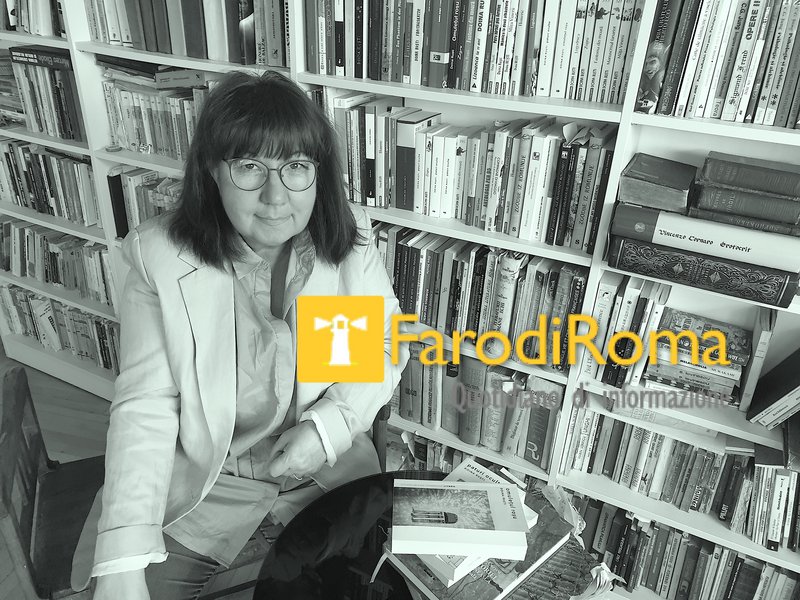
They say the economy lays the groundwork for all the problems affecting culture, and in our case, there have always been issues. If there has been any real growth, I haven’t felt it. The pandemic hit publishing houses hard and, implicitly, literature as well. What I have noticed, however, is a rise in individual initiative: writers publishing their own books, founding small independent presses without proper distribution, releasing their novels in electronic format, or posting them directly on social networks. At the same time, there has been a clear increase in audiobook production. In Romania, Litera Publishing House has even opened its own recording studios.
In my opinion, Nicolae Breban is the most important Romanian prose writer alive today. His powerful realist novels have influenced me deeply, especially In assenza dei padroni, a three-part masterpiece that constructs, with remarkable subtlety, the parable of a world without masters—the communist world. Published in the midst of the totalitarian era, the novel functioned as a vehement protest against society.
I am inspired by writers from all literary periods. Among the works that shaped me most are The Hieroglyphic Historyby Dimitrie Cantemir, the fantastic prose of Mihai Eminescu, the realist novels of Liviu Rebreanu and Hortensia Papadat-Bengescu, the experimental fiction of Camil Petrescu, the postmodern writings of Mircea Horia Simionescu, the stories of Mircea Cărtărescu, and the impressive prose of Radu Aldulescu, among many others.
Wow! I gave up having opinions about our leaders a long time ago. I haven’t owned a TV since 2010, and the news reaches me only sporadically. Still, about once a year I make an effort to catch up and see what I’ve been missing. What strikes me is a growing moral lightness. Ten years ago, it was considered perfectly normal for former convicts to run in elections. Today, a class of illiterates connected mainly through social networks has risen, and their sole priority seems to be personal image. All this reminds me of a film that once felt like a cheap comedy: Idiocracy (Mike Judge). Now it feels as though we’re all acting in it.
I am a Latinist, so through Latin culture I am deeply familiar with the Italian Renaissance. From Dante to Boccaccio, and through the Neoplatonists—Pico della Mirandola and Marsilio Ficino—the foundations of my cultural formation were laid.
In high school, during communism, when foreign literature was rarely translated, I discovered the work of Grazia Deledda. The tone of her writing and the atmosphere of her novels moved me deeply; her characters captivated me. Something specific to a marginal Latinity became permanently embedded in my sensibility.
I discovered Cesare Pavese during my university years and fell in love with his prose, which seems to hide promises in every sentence. Among contemporary writers, I admire the complex simplicity of Alessandro Baricco. Paolo Giordano, with The Solitude of Prime Numbers, is one of my favorites. I also admire the risks taken by Niccolò Ammaniti. At the moment, I am reading The Hummingbird by Sandro Veronesi, recently published in Romanian translation.
It was my debut novel, published in 2004, at a time when I was still hoping for an economic revival and for a bright form of capitalism. Although the situation was bleak and the communist legacy proved harder to overcome than we had imagined, spectacular changes were taking place: the emergence of the internet, video editing and music processing software, and the massive influx of Western products—the first jars of Nutella, for instance, or Italian shoes.
The novel L’omino rosso (Sandro Teti Editore, 2021) is set against this background of economic transformation, with the understanding that any sudden change generates its own anomalies. Laura, the narrator, holds a degree in classical languages and hopes to find her rightful place in society. Instead, she ends up working as a cook for a family, a situation that generates a series of humorous frustrations. In this context, an IT engineer creates a virus—a software experiment—that completely overturns her life. These are the premises of a fantasy novel closely connected to the years 1990–2000.
I am currently working on a short story collection entitled Love Oddities in Phanariot Bucharest. The stories are inspired by various events recorded in eighteenth-century documents.
Translated by Bianca Zbarcea
More: Faro di Roma (IT)
“Everything reminds me of a film that once seemed nothing more than a cheap comedy: Idiocracy. Now we’re all acting in it.”
— Doina Ruști